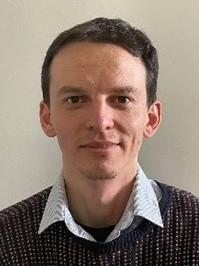Teaching high school astronomy through scientists' biographies
PosterAstronomy Education in Schools in Practice
6th Shaw-IAU Workshop
Tuesday Nov. 12, 2024
UTC: 11 a.m. - 12:30 p.m. America/New_York: 6 a.m.- 7:30 a.m.
, Wednesday Nov. 13, 2024
UTC: 10:30 a.m. - noon America/New_York: 5:30 a.m.- 7 a.m.
, UTC: 8 p.m. - 9:30 p.m. America/New_York: 3 p.m.- 4:30 p.m.
, Thursday Nov. 14, 2024
UTC: 5:30 p.m. - 7 p.m. America/New_York: 12:30 p.m.- 2 p.m.
To get students motivated one needs to establish a personal connection with subject, show its beauty and deliver amazing facts. From our experience, implementing elements of biographies of researchers into the curriculum has been a successful approach . References to misconceptions that are now considered ridiculous but once seemed like promising conjectures may attract students through humor and advance the critical thinking skill. Can we assume common personal traits of Johannes Kepler and Andrea Ghez, who made observations of the same objects over many years in a row? How ingenious were the ancient philosophers in laying the foundation of astronomical science without any computational tools? What moral choice did discoveries in nuclear physics inthe mid-twentieth century lead to?
Biography:
I got my graduate degree in the field of space physics in St Petersburg State Polytechnic University, Russia. After my graduation, however, I decided to become an educator and I've been working in education for more than 20 years.
As a teacher of astronomy at a high school for talented students, I was challenged by the lack of learning material. So, I had to develop my own curriculum to better meet high demands of my students. At some point I became a head of the boarding school department of our school





